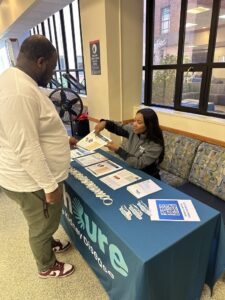 Ahead of the inaugural National APOL1 Kidney Disease Awareness Day on April 30, 2024, NephCure has been making a meaningful impact in communities across the country. The organization is joining hands with Historically Black Colleges and Universities and faith– based organizations nationwide to spread awareness about APOL1 kidney disease, a genetic form of kidney disease that impacts people of African descent.
Ahead of the inaugural National APOL1 Kidney Disease Awareness Day on April 30, 2024, NephCure has been making a meaningful impact in communities across the country. The organization is joining hands with Historically Black Colleges and Universities and faith– based organizations nationwide to spread awareness about APOL1 kidney disease, a genetic form of kidney disease that impacts people of African descent.
Black Americans are 3-4 times more likely to develop kidney failure than white Americans, this is due in part to genetics. Every person inherits 2 copies of the APOL1 gene. Those who inherit a change in both copies of their APOL1 genes have 10x to 30x the risk for developing kidney disease. These gene changes are only found in people of African descent. APOL1 researchers believe that up to 40% of Black Americans on dialysis have APOL1-related kidney disease.
NephCure’s goal for each of these partnerships, in addition to raising awareness, is to promote early detection and prevention.
Last month, a recent collaboration took place at Howard University College of Dentistry’s health fair on March 16, 2024. This health fair showcased various healthcare organizations and offered educational sessions in the D.C. Metro Area. Attendees had the opportunity to learn about the APOL1 gene and its connection to rare kidney disease, as well as to receive NephCure’s cookbook filled with kidney-friendly recipes and other educational materials, empowering individuals with more information they will need to manage their kidney health effectively.
On March 24, 2024, NephCure also partnered with Fountain of Praise Church in Houston, TX, to host an APOL1 Educational Event. This event was designed to raise awareness and empower communities affected. Lauren Eva, NephCure’s Executive Vice President, delivered impactful speeches at the event, emphasizing the importance of knowledge and support in addressing the challenges associated with the APOL1 gene variant. Rhianna Sullivan, and Kimberly Figgs, and other NephCure staff members, were present as well and engaged directly with church members, providing insights into an upcoming screening event at the church scheduled for April 28th. Their empathetic and knowledgeable approach created a space where community members felt supported and understood, encouraging them to take an active role in their kidney health.
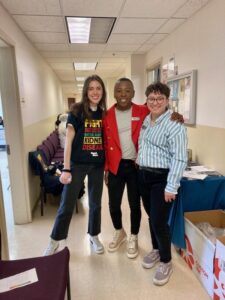 In Philadelphia, NephCure partnered with Enon Tabernacle Church and the CARE and JUSTICE team, an APOL1 kidney disease registryand clinical trial from Duke University, on April 20, 2024 for the church’s Know Your Numbers Men’s Health Initiative. More than 600 men came out to the event, and 176 of them received kidney screenings. Patient advocate, Joshua Albright, was also in attendance to sit on several panels throughout the day, sharing his personal experience with APOL1 kidney disease. NephCure’s newest Board of Directors, Rev. Leroy Miles and Dr. Barbara Gillespie were both at the event, helping lead the event logistics and conducting urinalysis screenings respectively. NephCure’s CEO, Josh Tarnoff, as well as other staff members, Montrez Lucas, Erin Park, and Kylie Karley assisted in the screening process, handing out NephCure education materials, APOL1 Awareness Day t– shirts, and overall helping provide crucial early detection and intervention opportunities.
In Philadelphia, NephCure partnered with Enon Tabernacle Church and the CARE and JUSTICE team, an APOL1 kidney disease registryand clinical trial from Duke University, on April 20, 2024 for the church’s Know Your Numbers Men’s Health Initiative. More than 600 men came out to the event, and 176 of them received kidney screenings. Patient advocate, Joshua Albright, was also in attendance to sit on several panels throughout the day, sharing his personal experience with APOL1 kidney disease. NephCure’s newest Board of Directors, Rev. Leroy Miles and Dr. Barbara Gillespie were both at the event, helping lead the event logistics and conducting urinalysis screenings respectively. NephCure’s CEO, Josh Tarnoff, as well as other staff members, Montrez Lucas, Erin Park, and Kylie Karley assisted in the screening process, handing out NephCure education materials, APOL1 Awareness Day t– shirts, and overall helping provide crucial early detection and intervention opportunities.
Looking ahead, NephCure has planned an APOL1 awareness event at Bethel Missionary Baptist Church in Tallahassee this Saturday, April 27, 2024. NephCure has organized urinalysis screenings for the 225 expected attendees and will be distributing educational materials and APOL1 Awareness Day shirts to foster conversations, promote a sense of community, and ultimately raise awareness.
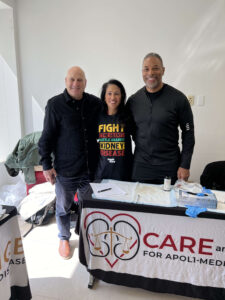 NephCure has other upcoming APOL1 awareness events this Sunday, April 28, 2024, in Houston, Chicago, Atlanta, and Washington, D.C. These events aim to educate attendees about the connection between the APOL1 gene variant and rare kidney disease risk. Each event will offer informative sessions with leading nephrologists, free t-shirts, urinalysis screenings and provide attendees with invaluable resources to help them take control of their kidney health.
NephCure has other upcoming APOL1 awareness events this Sunday, April 28, 2024, in Houston, Chicago, Atlanta, and Washington, D.C. These events aim to educate attendees about the connection between the APOL1 gene variant and rare kidney disease risk. Each event will offer informative sessions with leading nephrologists, free t-shirts, urinalysis screenings and provide attendees with invaluable resources to help them take control of their kidney health.
And to round out the APOL1 Kidney Disease Awareness Day events, NephCure is hosting a live, virtual town hall on the inaugural awareness day, April 30th, at 7pm ET. The event is free to attend, and all are encouraged to register here. To learn more about APOL1 and how you can get involved in APOL1 Kidney Disease Awareness Day on April 30th, please visit resources.nephcure.org/apol1.


 Eve Dryer, an esteemed leader in rare disease patient advocacy and healthcare communications with over 25 years of experience, recently retired from her role as VP of Patient Advocacy at Travere Therapeutics. Throughout her career, she has been a driving force in advancing health literacy and improving outcomes in underserved communities. Formerly, she founded and led Vox Medica’s PR and patient advocacy practices, earning accolades such as five Silver Anvil Awards and recognition in the PharmaVOICE 100. Eve’s dedication extends to her roles on the Board of Sisters Network Inc. and as a past chair of HealthyWomen’s Board of Directors. Her legacy includes championing patient diversity and inclusion initiatives, including her role in founding the Rare Disease Diversity Coalition and Travere’s internal Rare Disease Patient Advisory Council. With impactful endeavors like Teens for Pink (focused on African American breast cancer) and her leadership at a Philadelphia-based healthcare PR agency, Eve continues to be a pivotal figure in healthcare advocacy.
Eve Dryer, an esteemed leader in rare disease patient advocacy and healthcare communications with over 25 years of experience, recently retired from her role as VP of Patient Advocacy at Travere Therapeutics. Throughout her career, she has been a driving force in advancing health literacy and improving outcomes in underserved communities. Formerly, she founded and led Vox Medica’s PR and patient advocacy practices, earning accolades such as five Silver Anvil Awards and recognition in the PharmaVOICE 100. Eve’s dedication extends to her roles on the Board of Sisters Network Inc. and as a past chair of HealthyWomen’s Board of Directors. Her legacy includes championing patient diversity and inclusion initiatives, including her role in founding the Rare Disease Diversity Coalition and Travere’s internal Rare Disease Patient Advisory Council. With impactful endeavors like Teens for Pink (focused on African American breast cancer) and her leadership at a Philadelphia-based healthcare PR agency, Eve continues to be a pivotal figure in healthcare advocacy.
 Reverend Leroy Miles, an accomplished Mental Health Counselor, Certified Health Coach, and Community Health Consultant, has dedicated his career to enhancing public health both in the U.S. and internationally. Through his leadership as an Associate Pastor of Pastoral Care and Counseling at Enon Tabernacle Baptist Church, in Philadelphia, PA, he oversees ministries providing vital support in mental health, HIV/AIDS, anger management, drug and alcohol recovery, surviving sexual abuse, and maternal health— including the recent launch of a doula program addressing racial disparities in Black maternal health. Additionally, Rev. Miles spearheads city-wide charitable initiatives and serves as a Covid-19 testing/vaccination site lead. Rev. Miles’ commitment to health policy improvement is further demonstrated through his board membership with the American Heart Association. A multifaceted individual, he is also a certified anger management educator, martial arts black belt, avid cyclist, and competitor in endurance events like Tough Mudder and Spartan Race.
Reverend Leroy Miles, an accomplished Mental Health Counselor, Certified Health Coach, and Community Health Consultant, has dedicated his career to enhancing public health both in the U.S. and internationally. Through his leadership as an Associate Pastor of Pastoral Care and Counseling at Enon Tabernacle Baptist Church, in Philadelphia, PA, he oversees ministries providing vital support in mental health, HIV/AIDS, anger management, drug and alcohol recovery, surviving sexual abuse, and maternal health— including the recent launch of a doula program addressing racial disparities in Black maternal health. Additionally, Rev. Miles spearheads city-wide charitable initiatives and serves as a Covid-19 testing/vaccination site lead. Rev. Miles’ commitment to health policy improvement is further demonstrated through his board membership with the American Heart Association. A multifaceted individual, he is also a certified anger management educator, martial arts black belt, avid cyclist, and competitor in endurance events like Tough Mudder and Spartan Race.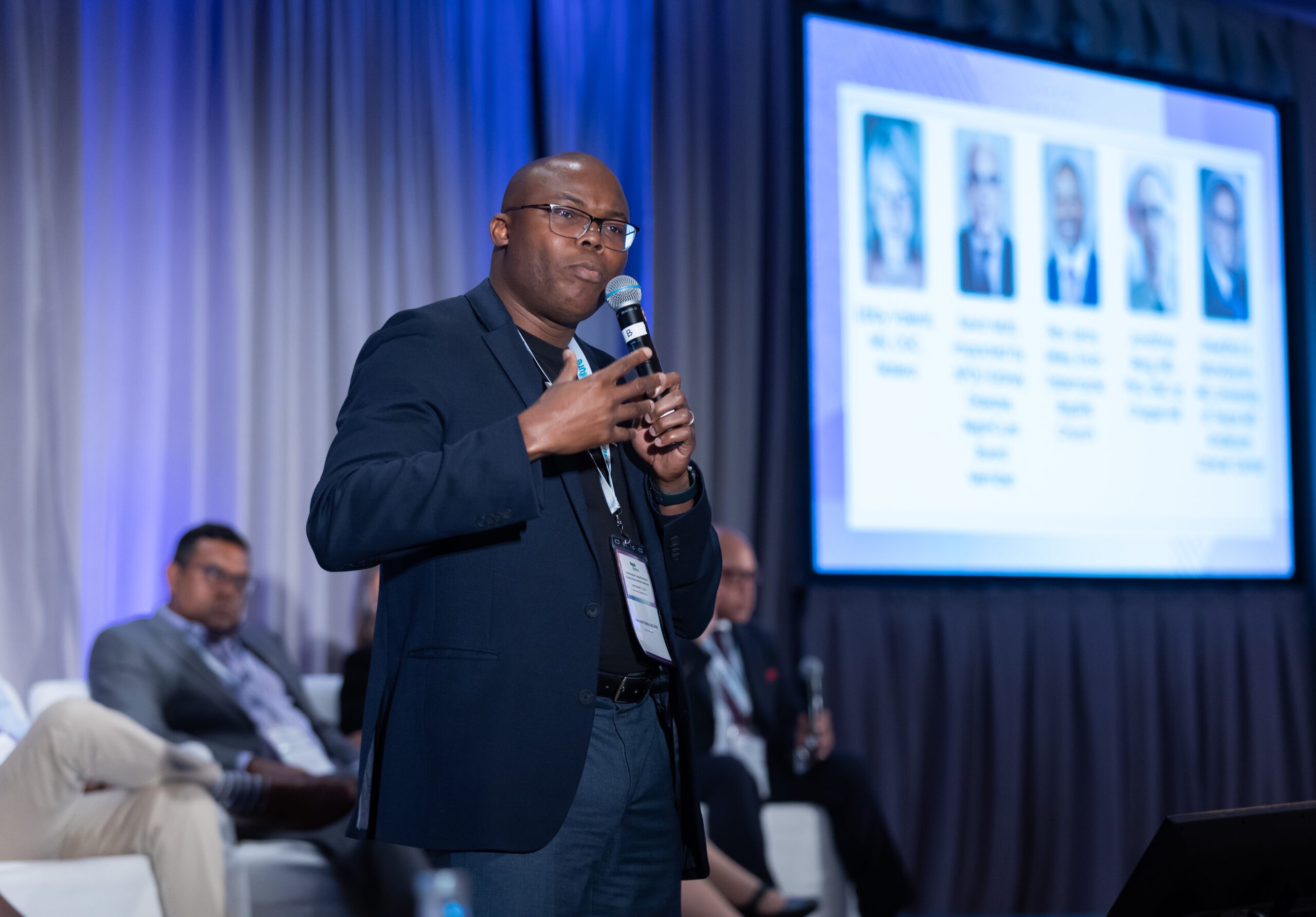
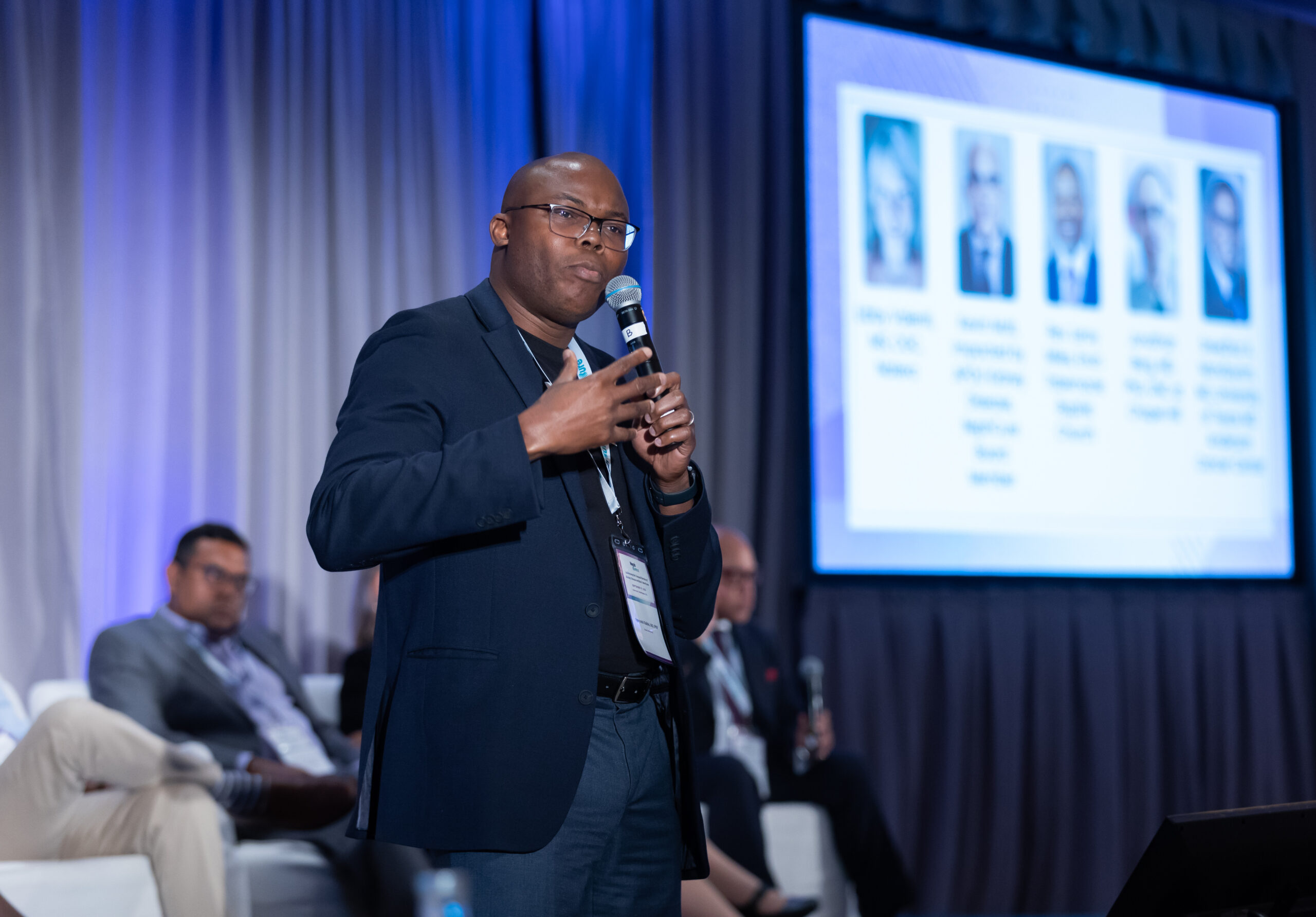
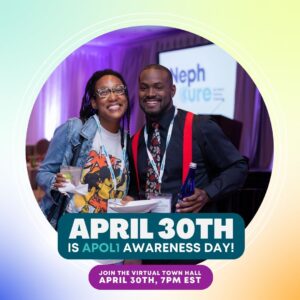


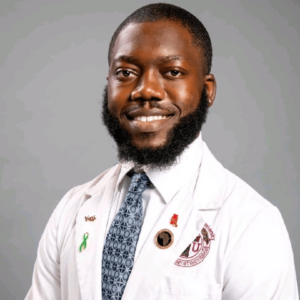 school.
school.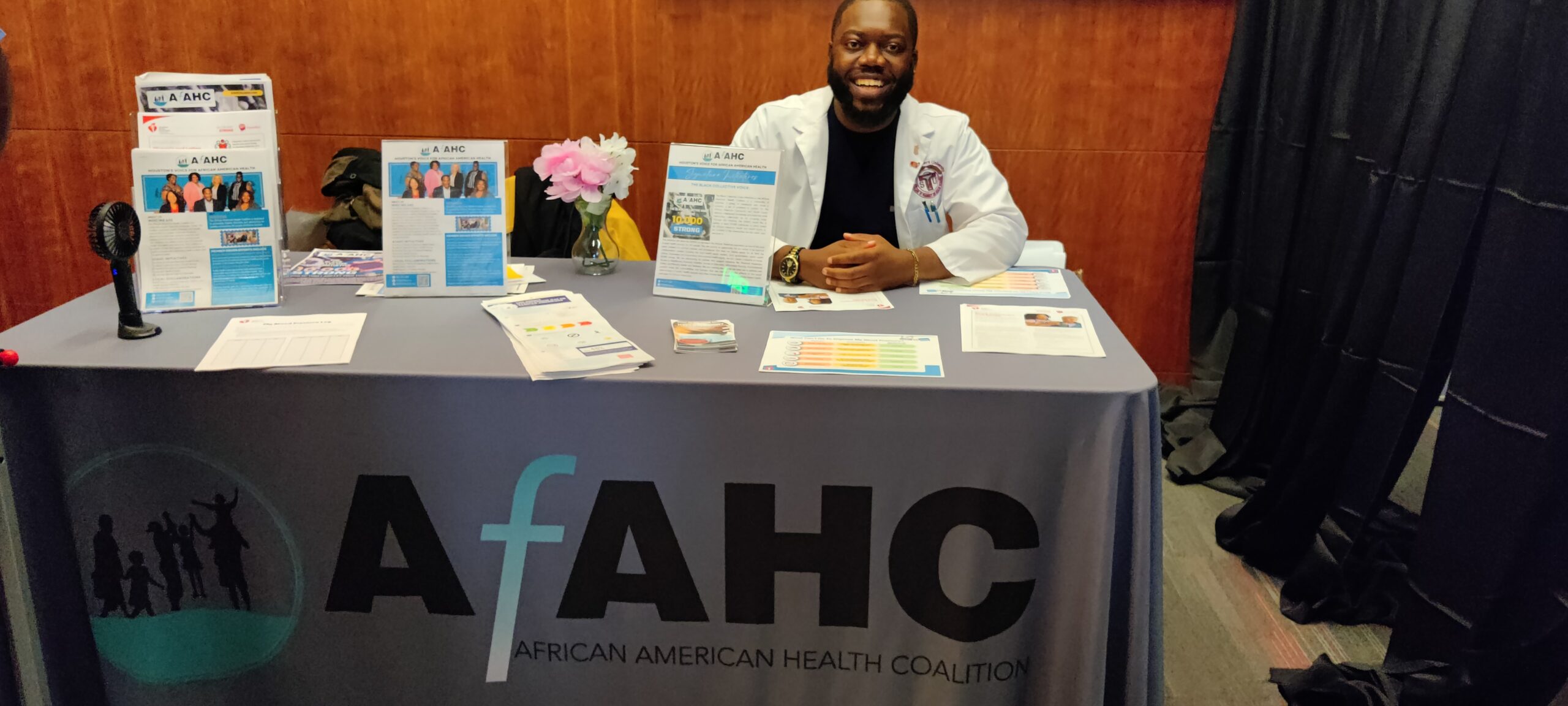 Luckily, I was rooming with my little brother so he was able to call an ambulance immediately. I was in a coma and the doctors said they had no idea if or when I would wake up. After three days, I woke up from the coma. Between this and college I was placed on probation at the University of Houston. I then transferred to Texas Southern University to finish my last year of college. After graduating, I was accepted into the Texas Southern University college of pharmacy where I also received my kidney transplant after 5 years on dialysis. I was told to withdrawal from school due to being behind in courses and needing to recover due to my health. But, fortunately my body healed quicker than expected and I was able to catch up and finish the semester on the Dean’s list.
Luckily, I was rooming with my little brother so he was able to call an ambulance immediately. I was in a coma and the doctors said they had no idea if or when I would wake up. After three days, I woke up from the coma. Between this and college I was placed on probation at the University of Houston. I then transferred to Texas Southern University to finish my last year of college. After graduating, I was accepted into the Texas Southern University college of pharmacy where I also received my kidney transplant after 5 years on dialysis. I was told to withdrawal from school due to being behind in courses and needing to recover due to my health. But, fortunately my body healed quicker than expected and I was able to catch up and finish the semester on the Dean’s list. 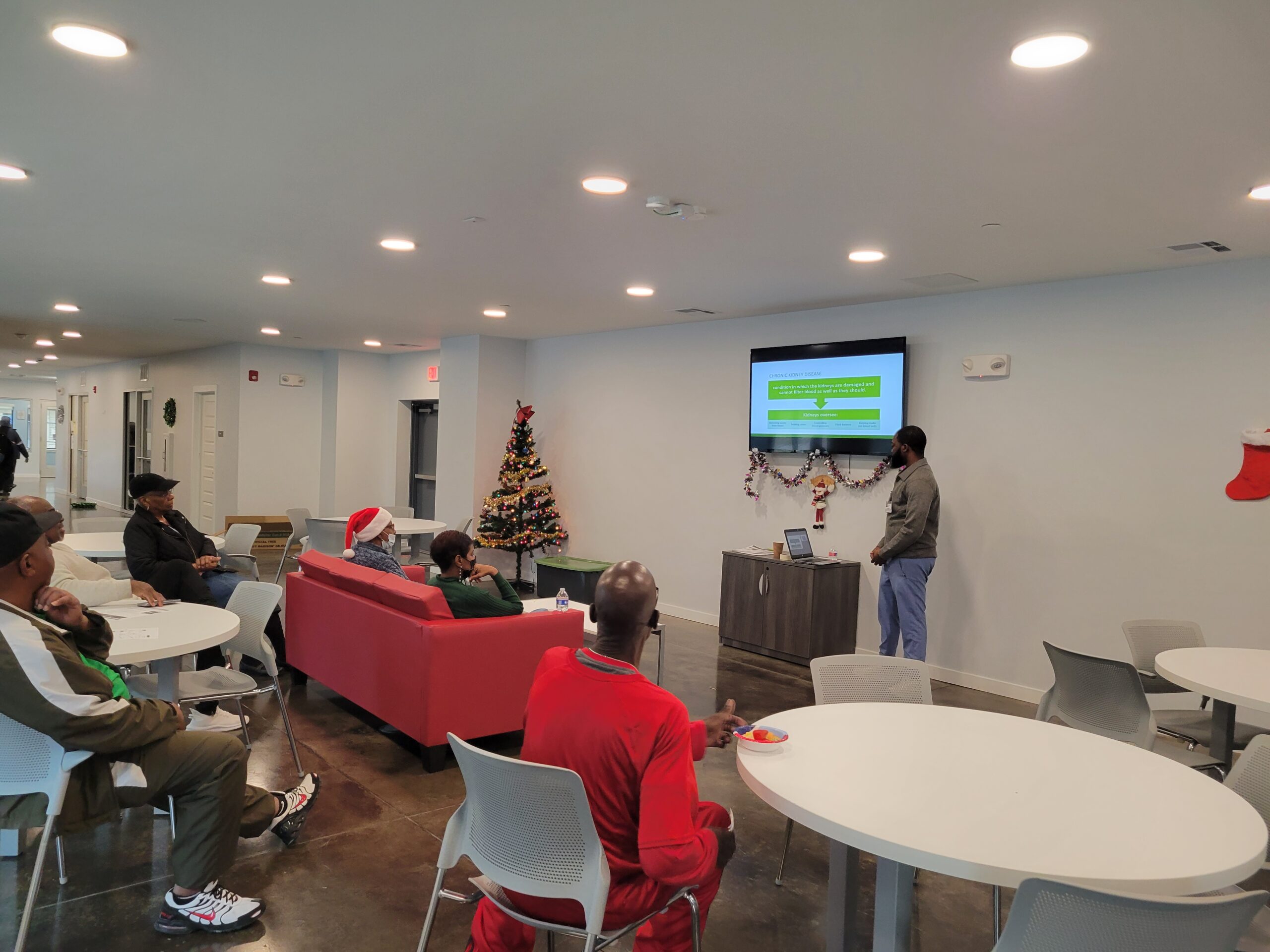


 On December 9, 2023, researchers, doctors, regulators, and patients from across the globe met in Washington, D.C. at the Proteinuria and GFR as Clinical Trial Endpoints in Focal Segmental Glomerulosclerosis (PARASOL) Project to discuss developing biostatistical models that could help with the design of clinical trials and aid subsequent regulatory approval of new treatments for FSGS.
On December 9, 2023, researchers, doctors, regulators, and patients from across the globe met in Washington, D.C. at the Proteinuria and GFR as Clinical Trial Endpoints in Focal Segmental Glomerulosclerosis (PARASOL) Project to discuss developing biostatistical models that could help with the design of clinical trials and aid subsequent regulatory approval of new treatments for FSGS.


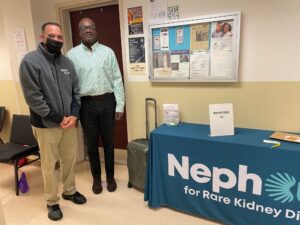

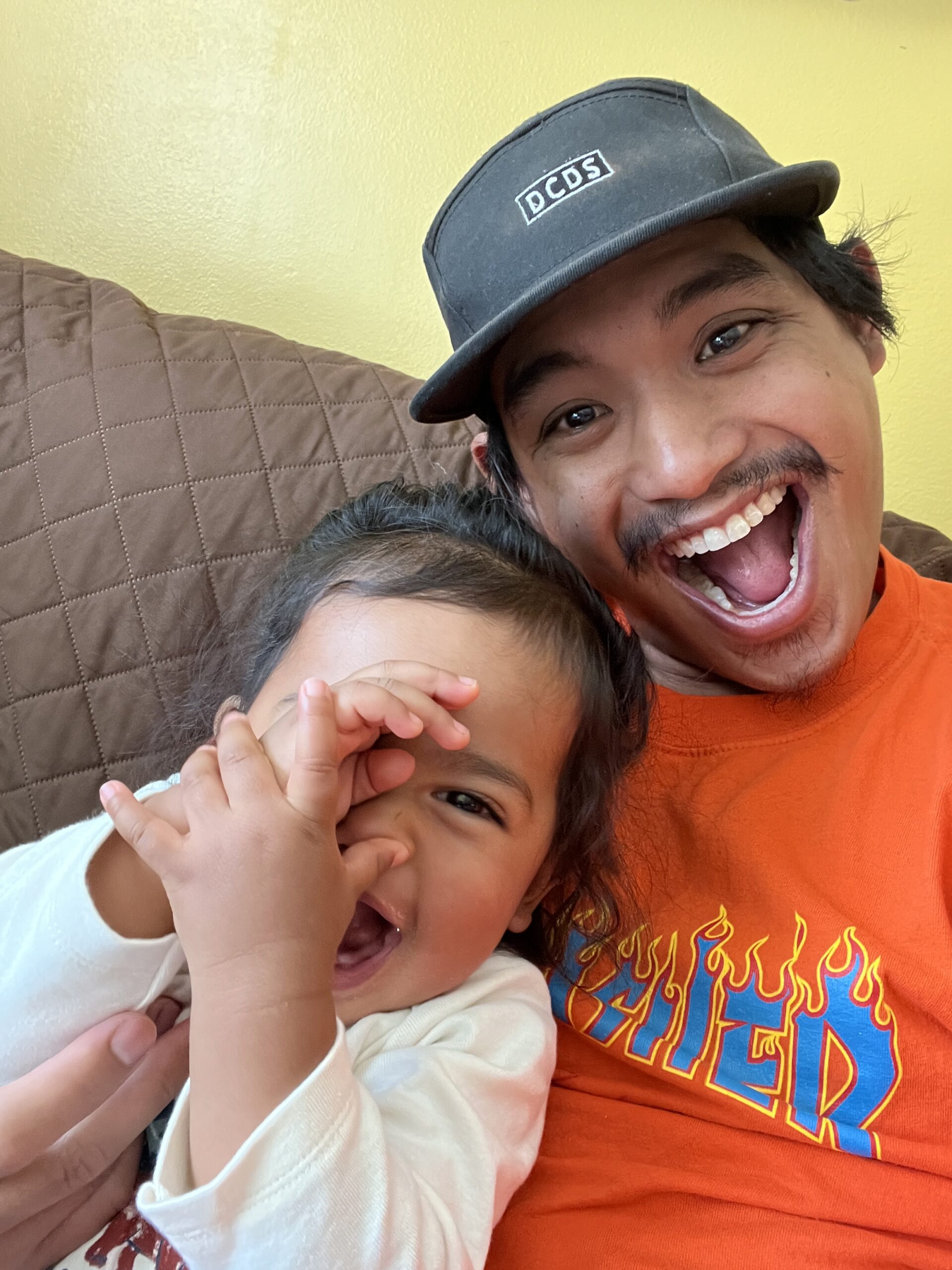
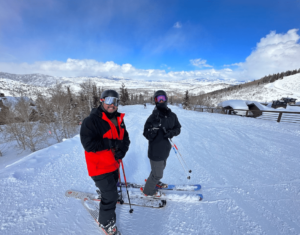
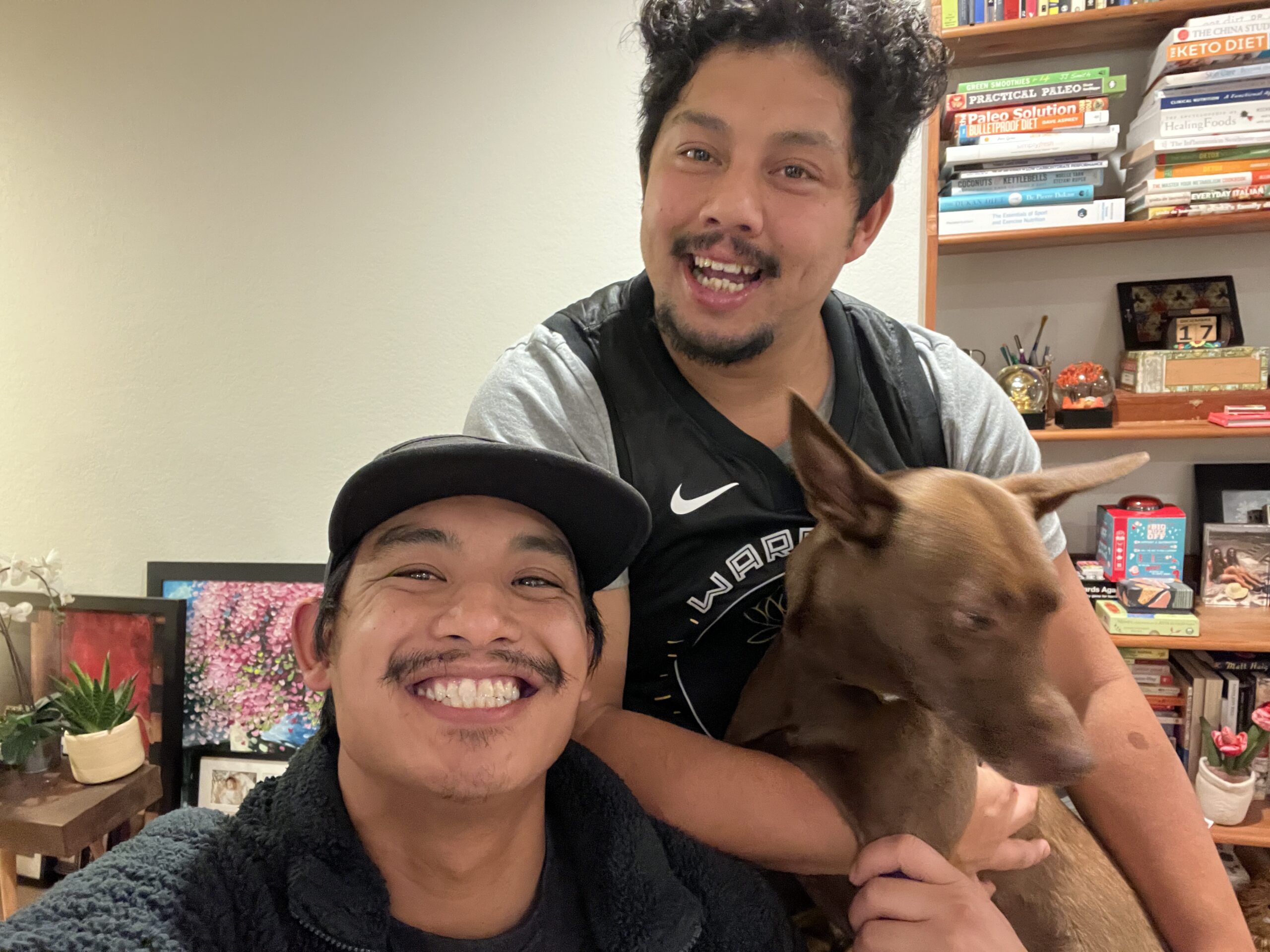 About my fourth year with my disease, my doctor asked me if I wanted to try a different medication to get me off of Prednisone completely. That’s when she introduced Tacrolimus. I am taking 2mg of Tacrolimus and going strong.
About my fourth year with my disease, my doctor asked me if I wanted to try a different medication to get me off of Prednisone completely. That’s when she introduced Tacrolimus. I am taking 2mg of Tacrolimus and going strong.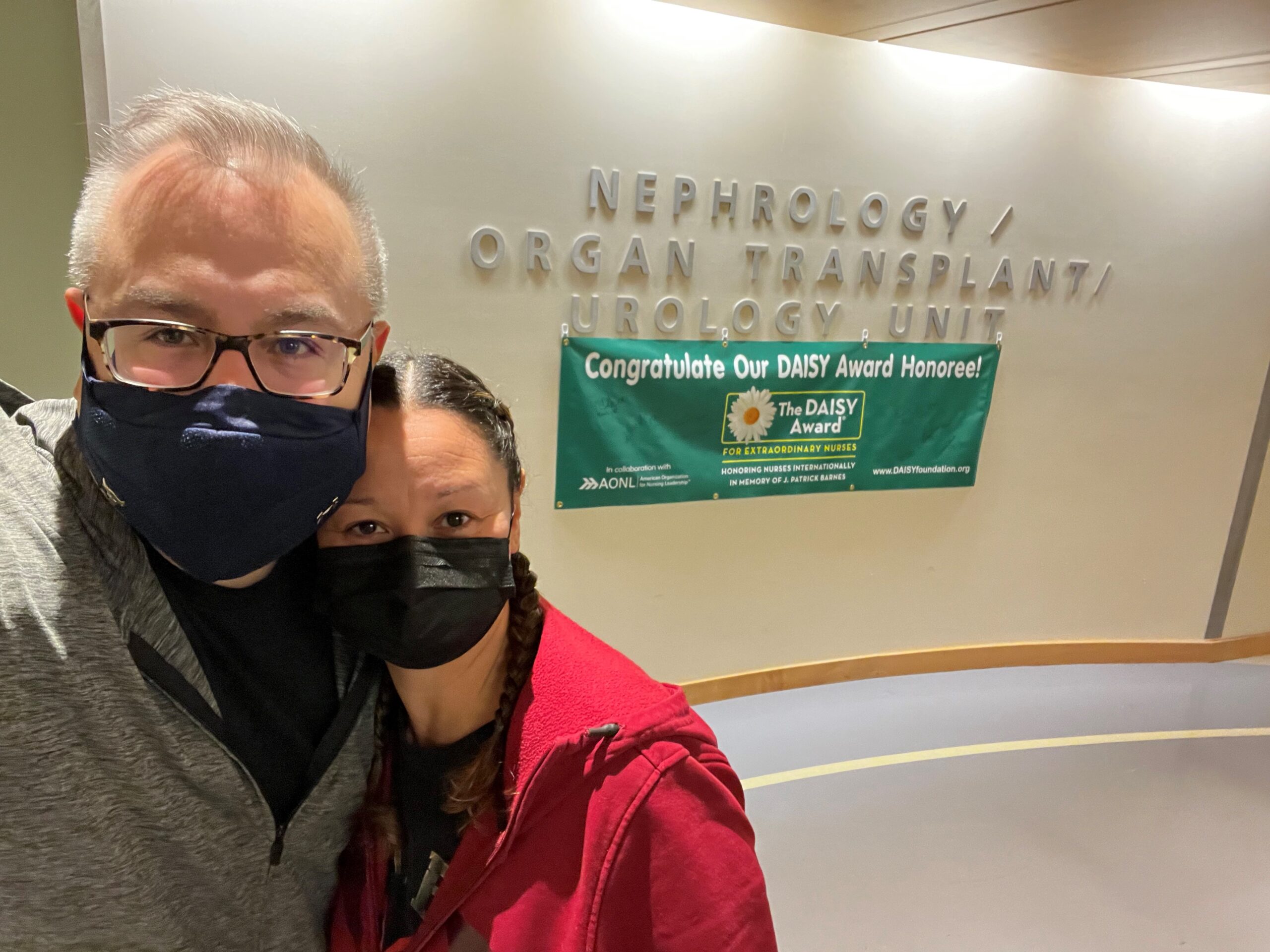
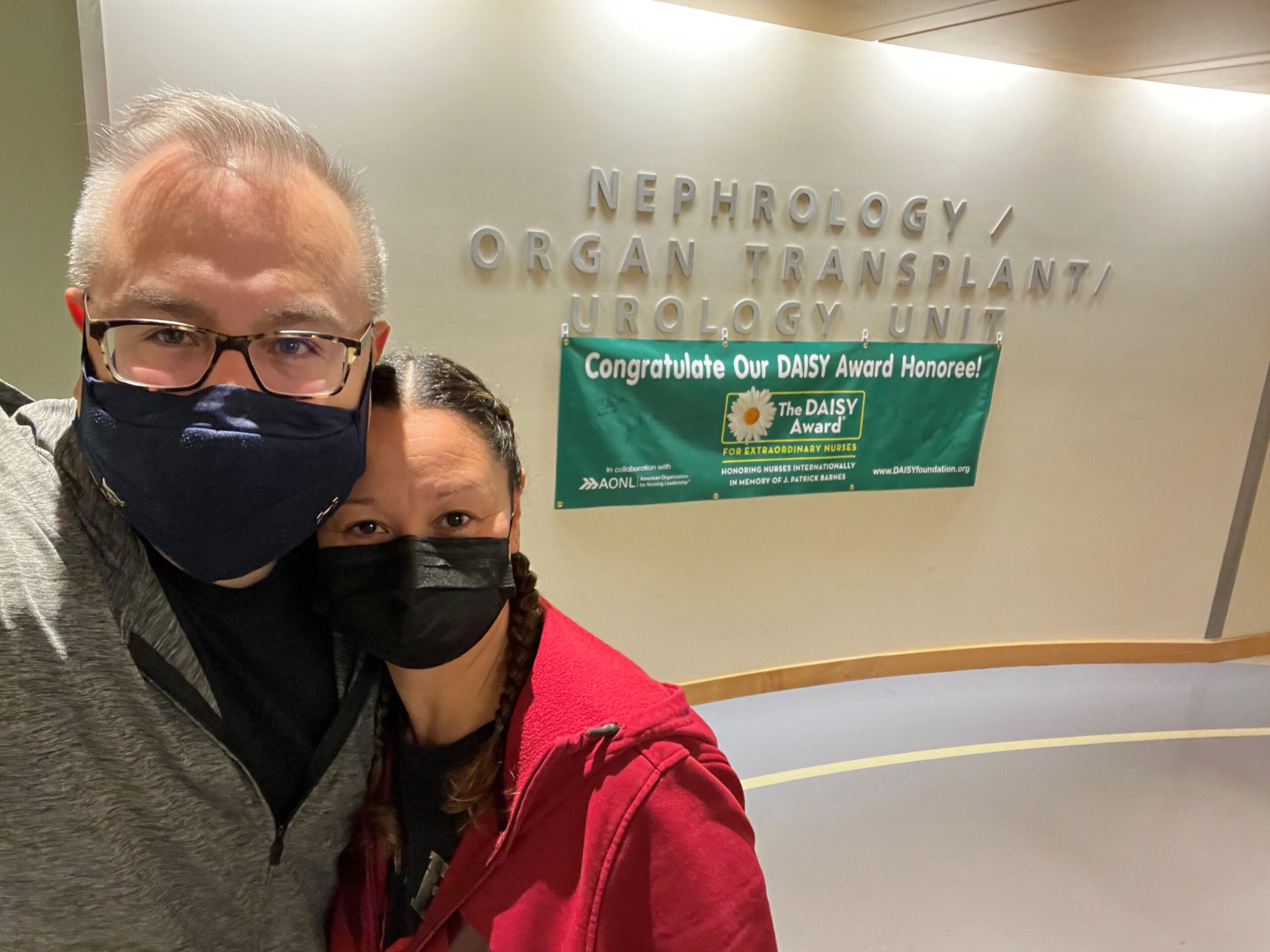
 The nephrologist quickly reviewed historical labs and ordered new ones. He found that there had been a long slow trend of protein spillage. He quickly asked Anthony to get a biopsy so they could identify exactly what was going on.
The nephrologist quickly reviewed historical labs and ordered new ones. He found that there had been a long slow trend of protein spillage. He quickly asked Anthony to get a biopsy so they could identify exactly what was going on.
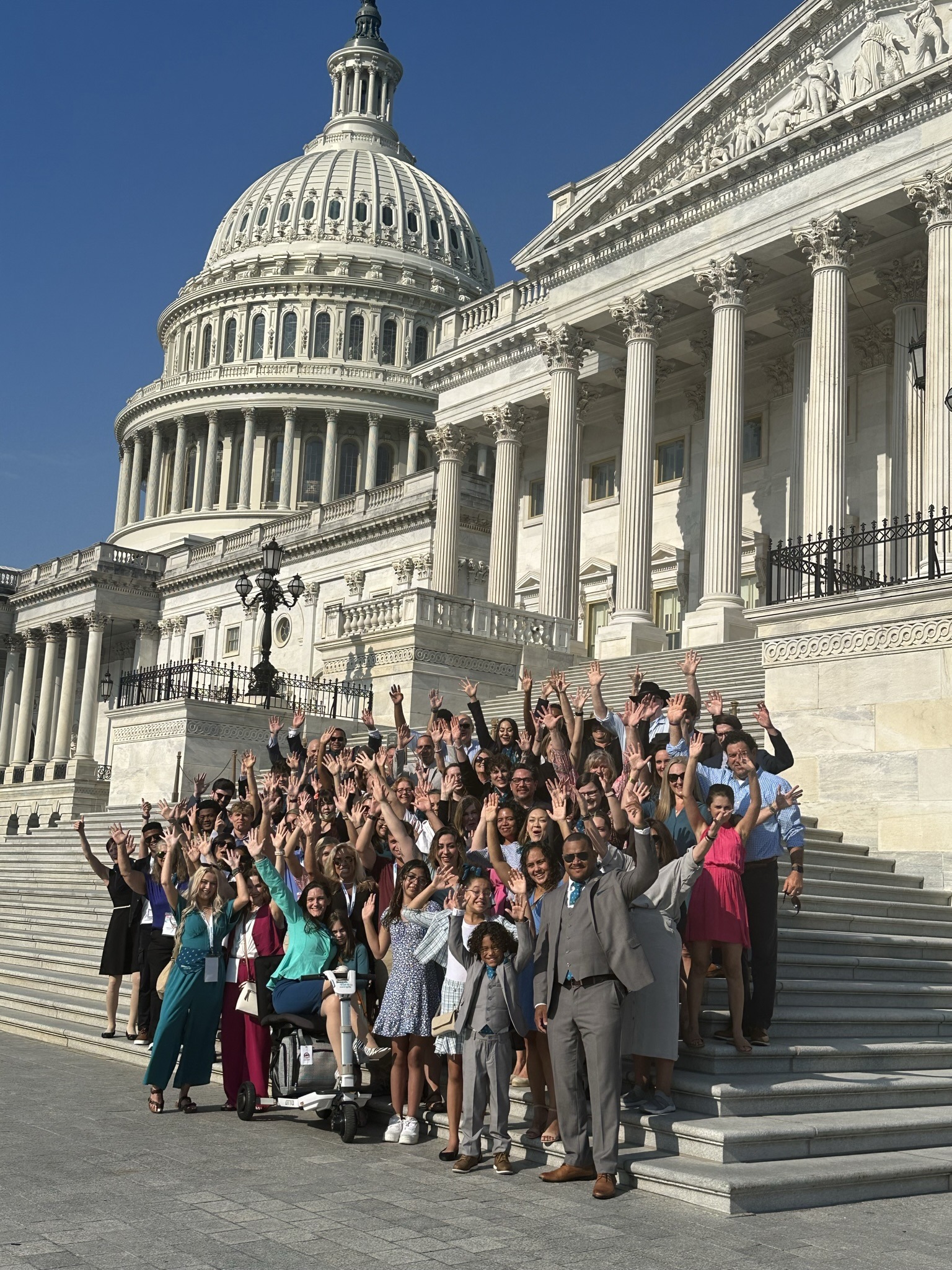
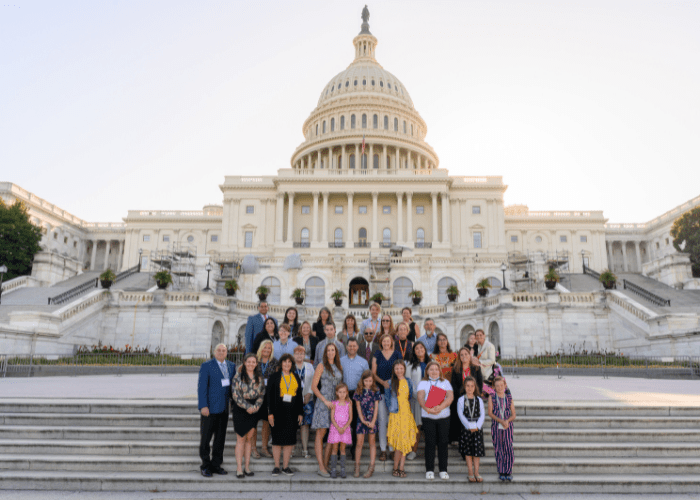
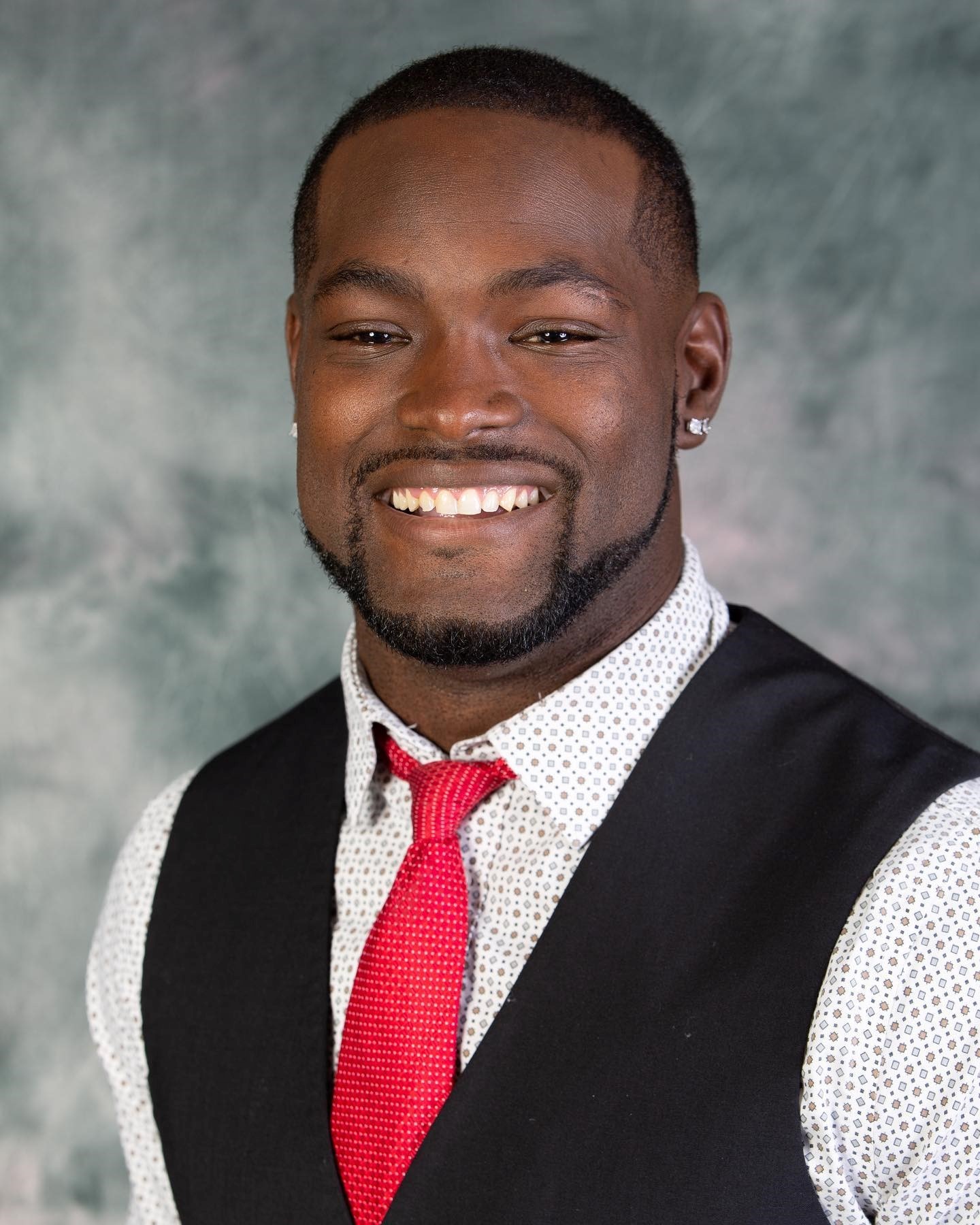
 irregular heartbeat. His blood pressure at the time was 234/176 when recorded from his right arm, yet
irregular heartbeat. His blood pressure at the time was 234/176 when recorded from his right arm, yet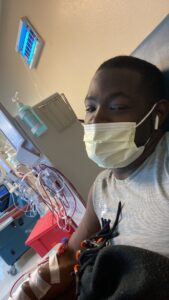 started affecting
started affecting